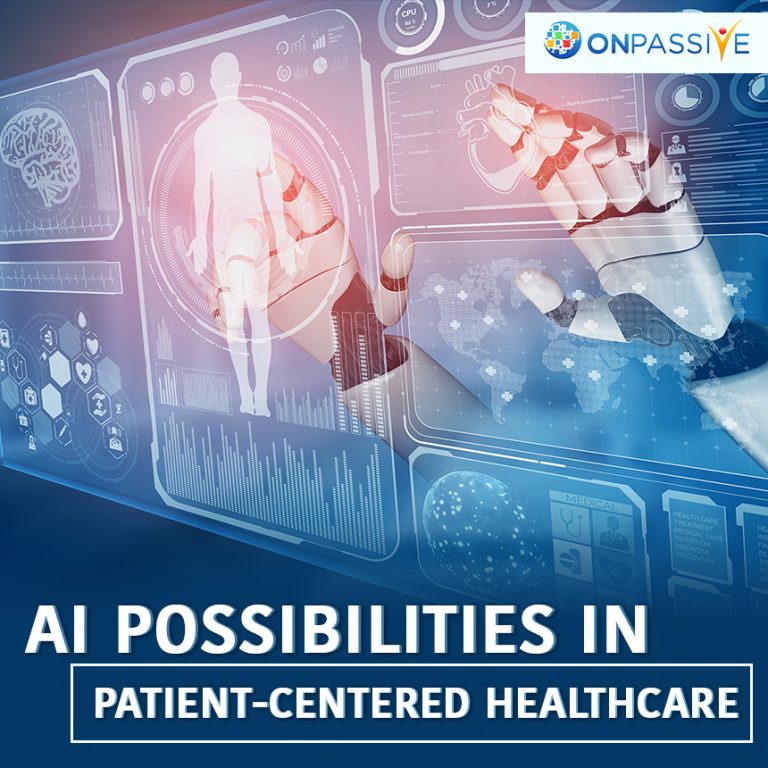
AI is rapidly transforming the healthcare sector, from tracking anxiety to diagnosing mental illness to keeping pace with patient health. Over the past decade, mental illness is on the rise. However, patients are not able to afford healthcare costs and services. As such, healthcare providers are in need to identify cost-effective alternatives to monitor patient health. This is where emotional AI comes into play. Emotional AI is one of the promising healthcare technologies that enable healthcare providers to keep track of patients and provide them health support cost-effectively. AI in Healthcare has enormous applications. Artificial intelligence help providers to handle administrative tasks and generate reports based on healthcare data. This will eventually help healthcare providers to stay connected with their customers during stressful or challenging conditions.
Benefits of AI in Healthcare
#1: AI as Medical Assistants
Today, AI can function as healthcare providers’ assistants as they perform major tasks. By employing AI, doctors can automate all significant tasks and focus more on patient health. AI enables healthcare providers to automate all major administrative tasks. Besides, AI tools and applications can help providers keep track of all user data and generate reports. This eventually can help healthcare providers to provide better services to their patients and enhance the patient experience. The accurate track of patient data can help providers offer better treatments to patients based on their medical conditions and needs.
AI tools and applications can help patients with mental health issues to combat their medical conditions. AI tools and applications can regulate patients’ emotions better, even in stressful or challenging situations. AI in Healthcare has various other applications. AI tools can measure a patient’s heart rate by tracking color changes in their face.
#2: AI as Emotional Support
AI-powered bots not only help patients monitor their overall well-being but also remind patients of long-term medical programs. Besides, AI bots interact with patients whose recent accident history or depression to elevate their mood levels. In addition to this, it gives providers an accurate understanding of how patients respond to their new medications. This eventually helps providers to change medicine and build an emotional connection with their patients.
From assisting in surgeries to having conversations with patients, AI-powered bots play a significant role in the healthcare sector. Today, nurses spend a major part of their working hours, coordinating lab results, doing administrative tasks, searching for medication and supplies, and much more. By deploying AI, healthcare providers can automate back-office services and save time and resources.
Various AI tools and applications also allow healthcare providers to monitor health, encourage healthy habits, and even detect early signs of illness. This will eventually help healthcare providers to enhance patient experience and patient satisfaction. In addition to this, healthcare firms can leverage AI to increase the speed and accuracy of translating scans and reduce unnecessary procedures.
AI in Healthcare also has applications in cancer diagnosis and treatment. AI system helps cancer patients to receive early diagnosis and increases their chances of survival. Healthcare professionals also use artificial intelligence tools to identify patients at greatest risks and prioritize decisions and actions.
AI as Chatbot
Similar to the chatbot in businesses, AI-powered chatbot has enormous applications in the healthcare sector. By deploying AI-based chatbots, healthcare professionals can gather customer data and respond to their queries at any time. Today, more users prefer knowing more about their medical conditions before physically consulting a doctor. By feeding valuable insights into chat boat’s, healthcare professionals can help patients identify the severity of their medical conditions. Another major advantage is that Chabot’s allow customers to get answers to their questions throughout the day.
Conclusion
There are various applications of AI in Healthcare. If you have not started leveraging AI tools and applications in your organization, it’s high time for you to start. By deploying artificial intelligence tools, we can stay connected to your patients, and automate all major administrative tasks.


